by Sher Delva | Aug 21, 2017 | Addiction, Anxiety Disorder, Drug Abuse, Internet, Therapy, Withdrawal
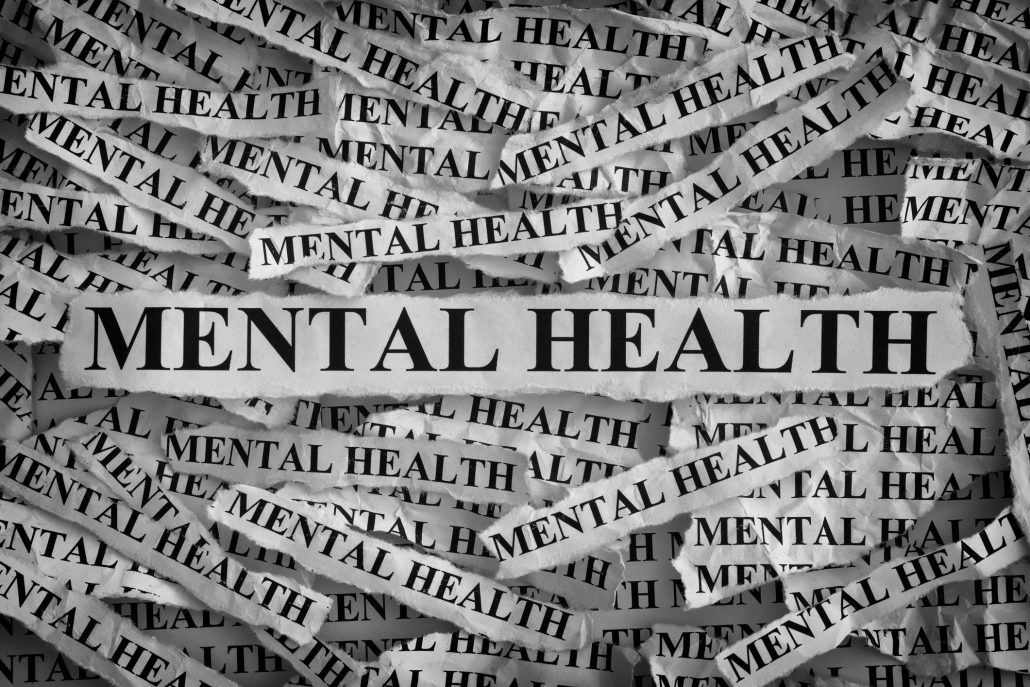
Lady Gaga continues to pave the way for mental health awareness, and now she’s bringing that awareness on her upcoming tour.
Gaga’s Born This Way Foundation has partnered with the National Council for Behavioral Health to bring Mental Health First Aid training to every American city on her Joanne tour. Lady Gaga and her mother, Cynthia Germanotta, want fans to be better prepared to help those struggling with mental health and substance abuse.
The training, described as “CPR for the mind,” will consist of an eight-hour-long course that teaches and provides the tools needed to help someone with mental health challenges. While the training does not turn people into crisis counselors, it does help people better understand how to identify and respond to signs of mental illness. The objective is to train 150,000 people by the end of 2017.
Since 2008, over 1 million people received training in Mental Health First Aid.
“To us, [the training] is so vitally important because there’s still a very large stigma around mental health, and around talking about it and providing help for people who are experiencing a mental health crisis,” Cynthia Germanotta told Mashable. “It’s really been invaluable because there’s just a comfort level knowing that if you see someone in crisis, you can have a conversation with them and hopefully determine how severe it is.”
Earlier this year, the Born This Way Foundation released its report regarding factors that influence mental wellness in young people. The results were gathered through surveying over 3,000 young people between the ages of 15 and 24, and over 1000 parents.
The findings confirmed that having a network of friends, community support, and access to resources was crucial for the mental well-being of young people. The report also found a dire need for more resources for young people to take better care of their mental health.
Mental Health First Aid Training:
These findings make Mental Health First Aid training even more valuable. These training help people obtain the tools and confidence needed to encourage friends and family seek help. Often, young people are not willing to talk to older adults or their parents.
Germanotta told Mashable about how Gaga was bullied in middle school, which inspired them to be a part of this mission. In the past, Lady Gaga has opened up about her mental health challenges, including her PTSD diagnosis.
Back in December 2016, Lady Gaga first revealed during an emotional visit with homeless, LGBTQ teens in New York that she had struggled with PTSD. She visited the Ali Forney Center to surprise teens with gifts as part of Today and NBC Universal’s #ShareKindness campaign.
“These children are not just homeless or in need. Many of them are trauma survivors. They’ve been rejected in some type of way,” Gaga said. “My own trauma in my life has helped me to understand the trauma of others.”
Furthermore, Gaga hopes her efforts during this upcoming tour will make an impact on the lives of young people.
What do you think about Gaga and her mother’s mission on the Joanne tour? Should other artists consider promoting similar programs? PTSD is not a laughing manner and if left untreated, can cause further mental health struggles, even substance abuse. Please reach out if you are struggling. No one should have to battle this on their own. If you or someone you love is struggling with mental illness or addiction, please call toll-free 1-800-777-9588.
CALL NOW 1-888-922-5398
by Sher Delva | Aug 18, 2017 | Addiction, Drug Abuse, Family, Mental Health, Mood Disorders
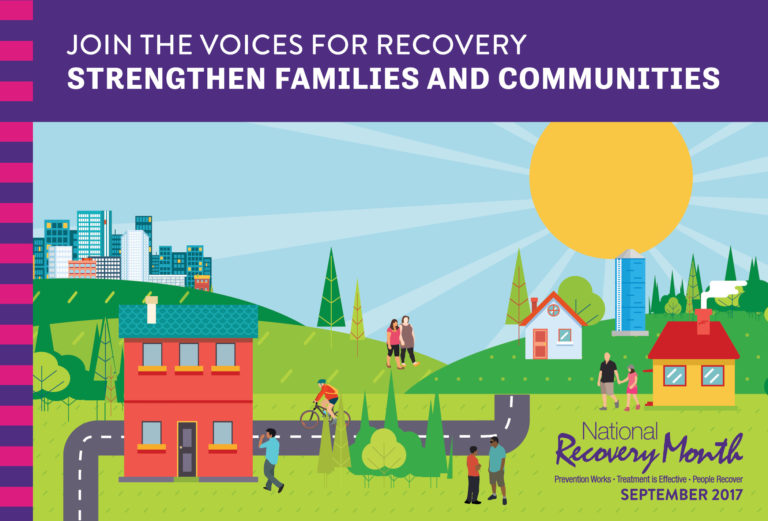
We are pleased to announce Dug and Heidi McGuirk of Palm Healthcare as special keynote speakers for this year’s Broward Recovery Month Event!
The Broward Recovery Event will honor special individuals in the community who are powerhouses for the recovery community.
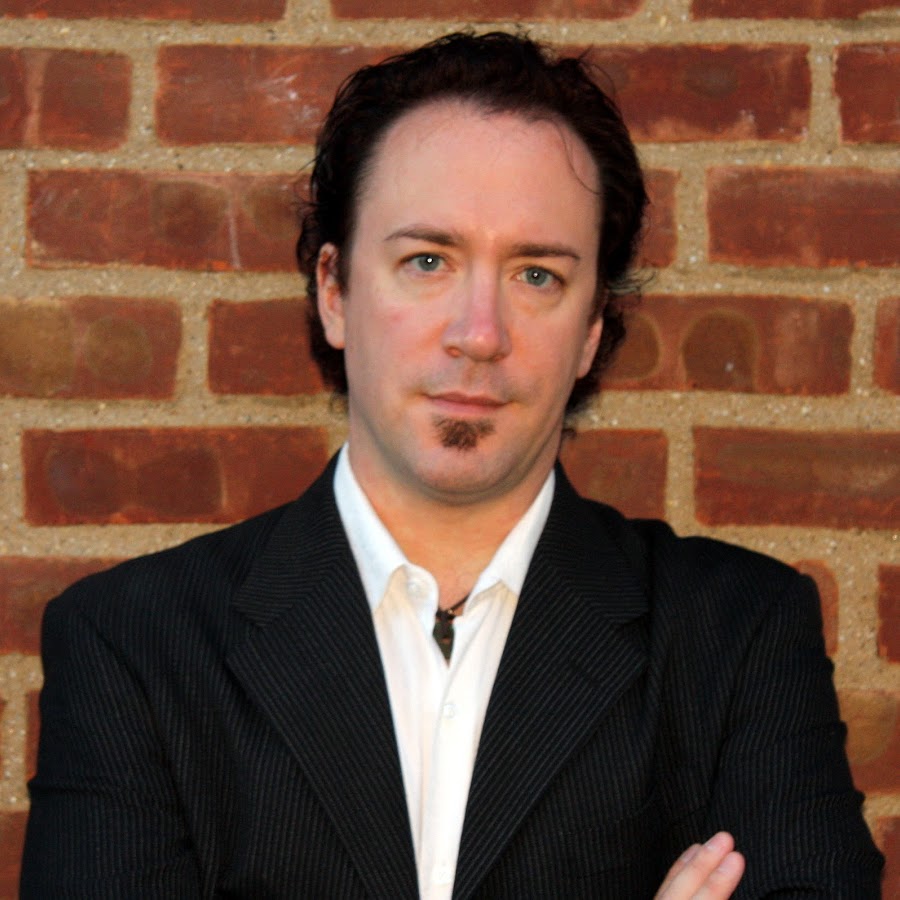 Dug McGuirk is an accomplished entrepreneur and inspirational speaker. As co-founder of Revolutionary Health, Dug is committed to transforming lives. Dug McGuirk is the VP of Training and Development for Palm Healthcare Company where he regularly teaches a variety of transformative classes.
Dug McGuirk is an accomplished entrepreneur and inspirational speaker. As co-founder of Revolutionary Health, Dug is committed to transforming lives. Dug McGuirk is the VP of Training and Development for Palm Healthcare Company where he regularly teaches a variety of transformative classes.
 Heidi McGuirk is an author, co-founder of Revolutionary Health, Master Relationship Coach and addiction professional who teaches several weekly classes at Palm Healthcare.She is the creator and CEO of Love Coach Heidi where she helps recovering co-dependent women learn how to love themselves first.
Heidi McGuirk is an author, co-founder of Revolutionary Health, Master Relationship Coach and addiction professional who teaches several weekly classes at Palm Healthcare.She is the creator and CEO of Love Coach Heidi where she helps recovering co-dependent women learn how to love themselves first.
Dug and Heidi both created an amazing family program for the families of addicted loved ones. The Family Program helps families navigate addiction and understand how to help their loved one instead of hurting them.
We would like to offer you the FREE GIFT of a checklist to help decipher if you are helping or hurting a loved one who is struggling with addiction.
Click for FREE GIFT
We encourage all to come out and support them in this year’s Broward Recovery Month event. Even if you are not familiar with the incredible work Dug and Heidi McGuirk do, you will gain so much from attending the event and hearing their words of inspiration and hope.
Here are the details:
Broward National Recovery Month Event:
When: September 9th from 11-3
Where: The War Memorial Museum
800 NE 8th St, Fort Lauderdale, FL 33304
What: Join special keynote speakers Dug and Heidi McGuirk for FREE food, fun, and inspiration.
This year’s theme for Recovery Month 2017 is Join the Voices for Recovery: Strengthen Families and Communities.
September marks the 27th anniversary of National Recovery Month. The purpose of National Recovery Month is to increase awareness and understanding of mental and substance use disorder and celebrate people who DO recover.
The 2017 theme highlights the value of family and community support. Recovery Month invites individuals in recovery and their family members to share their personal stories and successes to inspire and encourage others.
Broward Recovery Month will be an exciting, INSPIRING event for all to attend. You can make a difference by joining in the Recovery Month Effort.
Support is crucial when it comes to addiction recovery.
Events that support recovery help encourage and inspire those struggling with their addiction, as well as give an outlet to those who have had amazing success in recovery. These events were created to join the recovery community together and celebrate those who have achieved success in their journey.
Broward’s Recovery Month Celebration “honors outstanding individuals who have made significant contributions to helping people in our county remain sober.”
Overall, National Recovery Month helps instill a sense of belonging, safety, and security to the recovery community. This year, we encourage you to participate in events in your community that support addiction recovery. There are events happening nationwide for you to attend.
Whether you are new to recovery or have years of sobriety under your belt, everyone can benefit from attending major events like this. Families of addicted loved ones are strongly encouraged to attend because this year’s National Recovery Month specifically focuses on strengthening families. Families know more than anyone that addiction does not affect just the addict, it affects everyone around them too.
Millions of lives have been transformed through recovery. Often, these successes go unnoticed. Recovery Month is an excellent way for everyone to celebrate these accomplishments.
Addiction affects everyone, not just the addict. Therefore, if you or someone you know is currently struggling, please reach out. We want to help. Do not wait. Please call toll-free now.
CALL NOW 1-888-922-5398
by Sher Delva | Aug 1, 2017 | Addiction, Addiction Stigma, Drug Abuse, Mental Health, Recovery, Stigma, Withdrawal

Just last week, a train hit a couple who were hugging and laying on the tracks in an apparent suicide pact. The crash occurred on South Florida’s Tri-Rail and the train driver says he did everything he could to stop the train but was unsuccessful. Shockingly, the couple survived the crash and both are in critical condition at the Delray Medical Center.
Suicide by train is not anything new. In fact, the act has been depicted many times in movies and television shows. In the United Kingdom, suicide-by-train accounts for 3.5% of all suicides. A 2012 exposé revealed stories from train drivers who had killed people while operating a train. For some, the trauma from the experience lasts a lifetime.
Surviving a train crash is rare. It is difficult for trains to stop quickly enough to prevent crashes from happening. Still, Tri-Rail is fighting back, doing everything possible to prevent these fatalities. Palm Beach County, specifically, is the site of most cases of suicide-by-train. At least five people have been struck this year, four of them by Tri-Rail.
The crash is a reminder to Tri-Rail about the importance of suicide awareness and education, Tri-Rail spokeswoman Bonnie Arnold said.
“Unfortunately, suicide by train is a pretty sure thing. If someone wants to commit suicide, it’s pretty hard to prevent it.”
In response, Tri-Rail plans to put up crisis-intervention signs in vulnerable areas. They hope the signs will help people think twice about taking their own lives. The sign will also warn crews of the six problem spots along its 72 miles of track, which run from Miami-Dade to Palm Beach Counties.
Another Solution? Drones.
Tri-rail is also considering drones as a way of monitoring the tracks and deterring suicides. The drones would help alert train drivers of potential accidents further in advance. The drones would spot people on the tracks early enough to warn the drivers of potential issues.
Furthermore, The Florida Department of Transportation plans to launch a public-service campaign on radio, TV, and websites urging people to stay away from the tracks.
Florida’s New Brightline Trains Sees First Suicide
The newly constructed Brightline train has not even been open yet, and already has experienced their first suicide. The train is supposed to offer Floridians a much faster and relaxing way of commuting.
The website boasts:
- Go from Fort Lauderdale to Miami in 30 minutes
- Go from West Palm Beach to Miami in 60 minutes
- Work or play while you travel, care free and car free.
However, with the speed and convenience comes a high potential for suicide attempts. The trains are still in the testing phase and already an 18-year old woman was struck and killed when a train was going southbound on Monday afternoon.
“Our thoughts and prayers are with those affected,” the company said in a statement. “We are cooperating with the local authorities as they complete their investigation.”
In preparation for the start of service, the company has been working to promote train safety through workshops and warning students about the dangers of walking along the tracks.
Overall, these recent suicides are a serious indicator of problems to come as more trains develop all across South Florida counties. As for the couple mentioned, we will have to see if they are able to make a full recovery.
On average, there are 121 suicides every day in the United States. Mental illness is a serious problem and it is important to raise awareness. If you are struggling with thoughts of hopelessness and suicide ideations, know you are not alone. There Is help out there. Do not wait. Call now.
CALL NOW 1-888-922-5398
by Sher Delva | Jul 5, 2017 | Addiction
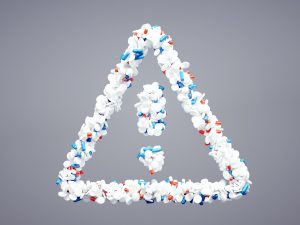
Benzos are so overused that they top all prescriptions in psychiatric medicine and are among the most prescribed medication of any type in the United States. Nearly 50 million benzos prescriptions are written every year.
Prescriptions for benzos have skyrocketed over the past two decades. Between 1996 and 2013, the number of prescriptions for benzodiazepines more than tripled and fatal overdoses more than quadrupled.
What’s the Big Deal?
Benzos are known for helping with anxiety disorders and insomnia, so what’s the big deal if they are heavily prescribed?
Well, there are a couple of reasons why this is a major problem.
First, there is evidence indicating these drugs do not work well over the long-term. Studies reveal that long-term use of benzos can increase anxiety symptoms. Furthermore, it is possible to treat anxiety and sleep disorders without medication, or at least with other medications besides benzos.
The second problem is the addiction and dependence risk. People who receive high doses of benzos can become physically dependent fairly quickly. Without medical supervision, the withdrawals from benzos are severe, ranging from intensified anxiety to high blood pressure, seizures, and convulsions.
The longer someone uses benzos, the greater the likelihood of addiction. People who misuse benzos tend to take higher-than-prescribed doses or mix the pills with alcohol or other drugs. Benzos are often chewed or crushed which interferes with the timed-release formula and speeds up the effects. This way of using benzos is extremely dangerous.
A Deadly Combination?
The true dangers of benzos really amplify when they are taken with other substances like opioids and alcohol. The risk of combining benzos and opioids is well-known, yet many doctors prescribe benzos and opioids together to patients.
From 2001 to 2013, benzos and opioid prescriptions increased by 80%, according to an analysis by researchers at the Stanford University School of Medicine. It is not considered safe to use both together yet this is fairly standard practice.
Opioids vs. Benzos?
Highlighting the dangers of benzos is not intended to diminish the significant dangers of prescription painkillers. Make no mistake, we are in the midst of an opioid epidemic, and opioid addiction has become a national crisis. However, in 30 percent of opioid-related deaths, a combination of benzos and opioids caused the overdose. That’s why it is so important to talk about benzos when we are discussing the opioid epidemic.
Why is this combination so deadly?
Opioids and benzos both slow down the body systems, particularly the respiratory and cardiovascular systems. Therefore, it is not difficult to understand why this combination is so risky. You are essentially combining two substances that slow down the functioning of your body. If you add a cocktail on top of that, it only compounds the problem. In worse case scenarios, this combination of substances causes breathing to stop.
In addition, alcoholics regularly abuse the benzo alprazolam, known by its brand name Xanax. Alcohol is a depressant so combining alcohol with the sedative effects of benzos increases the likelihood of overdose and respiratory failure.
Should Doctors Take the Blame?
The use of benzos often begins in the form of a prescription. Dual prescriptions of benzos and opioids are far from uncommon. Doctors are more likely to prescribe to patients who complain of pain, anxiety, and insomnia during a limited 15-minute consultation time.
In this rushed state, a physician may desire to help a patient but not have the time to explore the underlying causes. Therefore, medication becomes the easiest treatment. It unclear whether doctors are adequately warning their patients of the potential dangers of combining these drugs to help prevent addiction. As for now, it is difficult to place the blame on one person or thing, but one thing is for certain: people need to know the risks.
—
Overall, more and more people are struggling with addiction, and overdose death numbers have reached epidemic levels. If you are currently struggling with addiction, please do not wait. Recovery is possible. Call toll-free today.
CALL NOW 1-888-922-5398
by Sher Delva | Jun 28, 2017 | Addiction, Addiction Stigma, Addiction Treatment, Drug Abuse, Mental Health, Prescription Drugs, Stigma, Therapy, Uncategorized
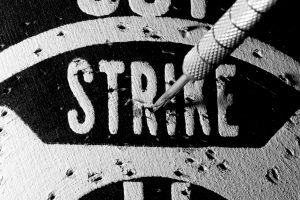
One Ohio City is fed up with dealing with drug addicts who overdose over and over again.
Their solution? Simple: Three strikes and you’re out.
But is this really the right way to go about this?
Recently, Dan Picard, a councilman from Middletown, Ohio proposed a new strategy to handle the influx of overdose calls in his city. He claims the city had spent $100,000 on the lifesaving drug. His solution is to limit the number of times an addict can be revived with Narcan.
“It’s not a proposal to solve the drug problem,” Picard said this week. “My proposal is in regard to the financial survivability of our city. If we’re spending $2 million this year and $4 million next year and $6 million after that, we’re in trouble. We’re going to have to start laying off. We’re going to have to raise taxes.”
While it may seem extreme, Picard believes something must be done to reduce the hundreds of thousands of dollars spent administering the overdose antidote Naloxone.
According to the National Institute of Health, Naloxone, also known by the brand name Narcan, is a “medication designed to rapidly reverse opioid overdose.”
How the Proposed Plan Works
The plan proposed states that anyone who overdoses twice must complete community service equivalent to the cost of administering the Narcan. If the person has been provided Narcan two overdoses before and has not completed the required community service requirement, dispatchers will not send help their way.
“If the dispatcher determines that the person whose overdosed is somebody’s that’s been part of this program for two previous overdoses and has not completed community service and has not cooperated in the program, then we wouldn’t dispatch,” Picard explains.
Middletown has seen a significant spike in overdoses. Just last year alone, there were 532 overdoses reported. It may sound extreme, but Picard insists the city cannot afford to continue responding to overdoses at the same rate.
“We’ve got to do what we’ve got to do to maintain our financial security, and this is just costing us too much money,” he told NBC affiliate WLWT.
This city of Middletown, Ohio spent three times as much on Narcan this year as they did all of 2016. The numbers in 2017 already surpass that of the previous year at 577 overdoses so far.
Numbers Soar Throughout Ohio
All across Ohio, communities like Cleveland, Elyria, Parma, Chardon, and others have seen people need Narcan again and again after overdosing on opioids.
As of right now, the fire department is required by law to provide Narcan in response to an overdose. The legal department is reviewing this plan proposed by Picard. In the meantime, the fire department is applying for grants and donation to increase funds for Narcan.
Sal Valdez, the Clinical Coordinator for American Medical Response in Rochester, stated to a local news station, that he responds to at least four drug overdoses every day and about 80 every month. Each time, paramedics administer Narcan, they could need multiple doses. He also notices overdoses occurring in similar areas to repeat offenders.
“Sometimes we do know these patients by name,” Valdez said. “In my experience, we do see the same patients over and over again, and we respond to the same locations.”
Way Too Extreme?
One study estimates the cost of the prescription drug opioid epidemic costs American society $78.5 billion. Regardless, many find this proposed strategy way too extreme. This could mean the difference between life and death for some, preventing them the opportunity to recover.
Daniel Raymond, the deputy director of the Harm Reduction Coalition, told the Washington Post, that he’s “disappointed” by Picard’s plan of action. He noted that the proposal was an insult to families of loved ones struggling with addiction.
“Ohio is an epicenter of the heroin epidemic … and you can empathize with the frustration, but not with this type of solution,” Raymond told The Post.
What are your thoughts on this plan? Personally, it feels like this proposal only further stigmatizes the perception of addiction. Would we treat any other illness in this manner?
We believe recovery is a better option. Addiction should receive treatment just like any disease. Please seek help if you are struggling with substance abuse. Please call toll-free today to speak to an addiction specialist. We want to help.
CALL NOW 1-888-922-5398


 Dug McGuirk is an accomplished entrepreneur and inspirational speaker. As co-founder of Revolutionary Health, Dug is committed to transforming lives. Dug McGuirk is the VP of Training and Development for Palm Healthcare Company where he regularly teaches a variety of transformative classes.
Dug McGuirk is an accomplished entrepreneur and inspirational speaker. As co-founder of Revolutionary Health, Dug is committed to transforming lives. Dug McGuirk is the VP of Training and Development for Palm Healthcare Company where he regularly teaches a variety of transformative classes. Heidi McGuirk is an author, co-founder of Revolutionary Health, Master Relationship Coach and addiction professional who teaches several weekly classes at Palm Healthcare.She is the creator and CEO of
Heidi McGuirk is an author, co-founder of Revolutionary Health, Master Relationship Coach and addiction professional who teaches several weekly classes at Palm Healthcare.She is the creator and CEO of 



